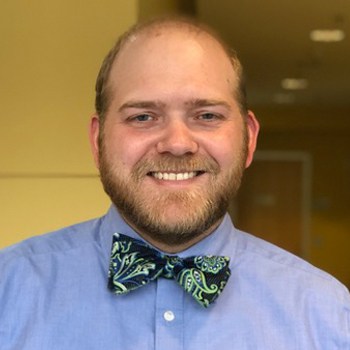
Aaron Johnson receives NSF grant
Funding supports the development and study of macroethics curricula in aerospace engineering

Funding supports the development and study of macroethics curricula in aerospace engineering
Engineering education requires more than technical knowledge for engineers to develop solutions to the world’s greatest problems. New funding from the National Science Foundation for research by Aerospace Assistant Professor Aaron Johnson (AE B.S.E. ‘08) aims to develop and study engineering curricula that focus on aerospace engineering’s responsibility to society as a means of more richly contextualizing engineering applications. The three-year, $600,000 NSF grant will further work that Professor Johnson has already begun in two advanced undergraduate aerospace courses.

The grant is awarded collaboratively to Johnson at U-M and his colleague and former student Corey Bowen (AE Ph.D. ‘21), an assistant professor at Cal State LA. It will also involve aerospace engineering faculty from the University of Colorado Boulder and Embry-Riddle – Prescott.
“This grant will greatly support our continued research in this area, and I’m very excited for the work to come. It is a relatively large award by engineering education research standards, and the fact that it was awarded collaboratively to Corey and myself is a testament to how important this research is to many of us across the country. We’re grateful to the NSF for recognizing the value of this work,” comments Johnson.
Johnson further explains this research: “Without putting aerospace engineering in its social context, students are left ill-prepared to recognize and address questions of macroethics: challenging, society-level ethical concerns that are directly relevant to their future engineering careers. Aerospace engineering curricula should support the development of the critical consciousness required for students to reflect on the social impact of the field and their present and future roles within it.”
This research embodies the college’s ideas that through our people-first framework, Michigan Engineering is reimagining and reshaping what engineering can be – at Michigan and beyond – enabling all engineers to have a positive impact on the world and build a future that will elevate all people.
“Our project has the potential to impact aerospace engineering students—particularly those who are marginalized within the field—as well as the aerospace industry and society more broadly. Students will come to recognize both the potential for aerospace engineering knowledge to contribute toward social good as well as the agency they have as engineers to contribute to a better world for everyone,” Johnson said.